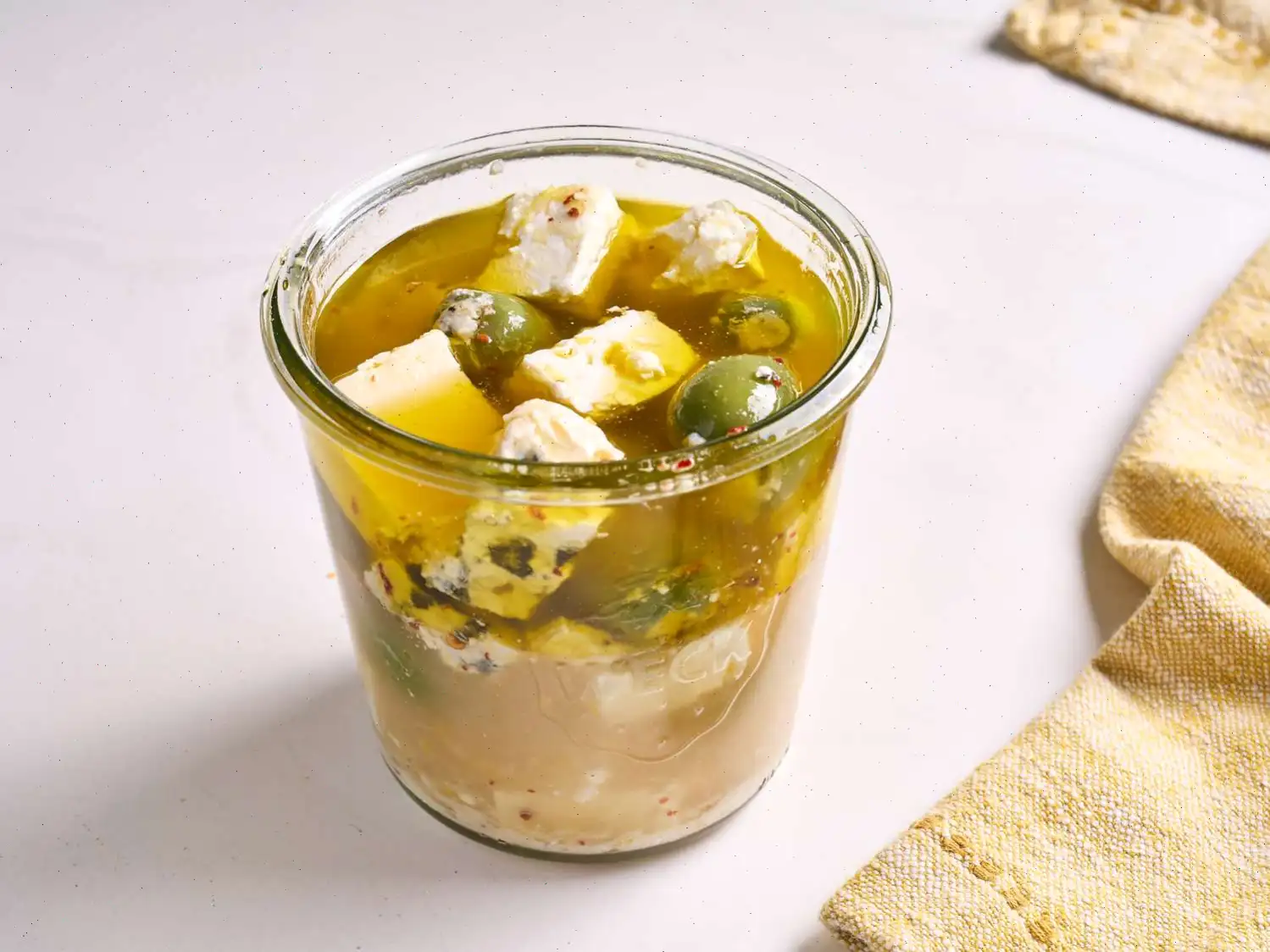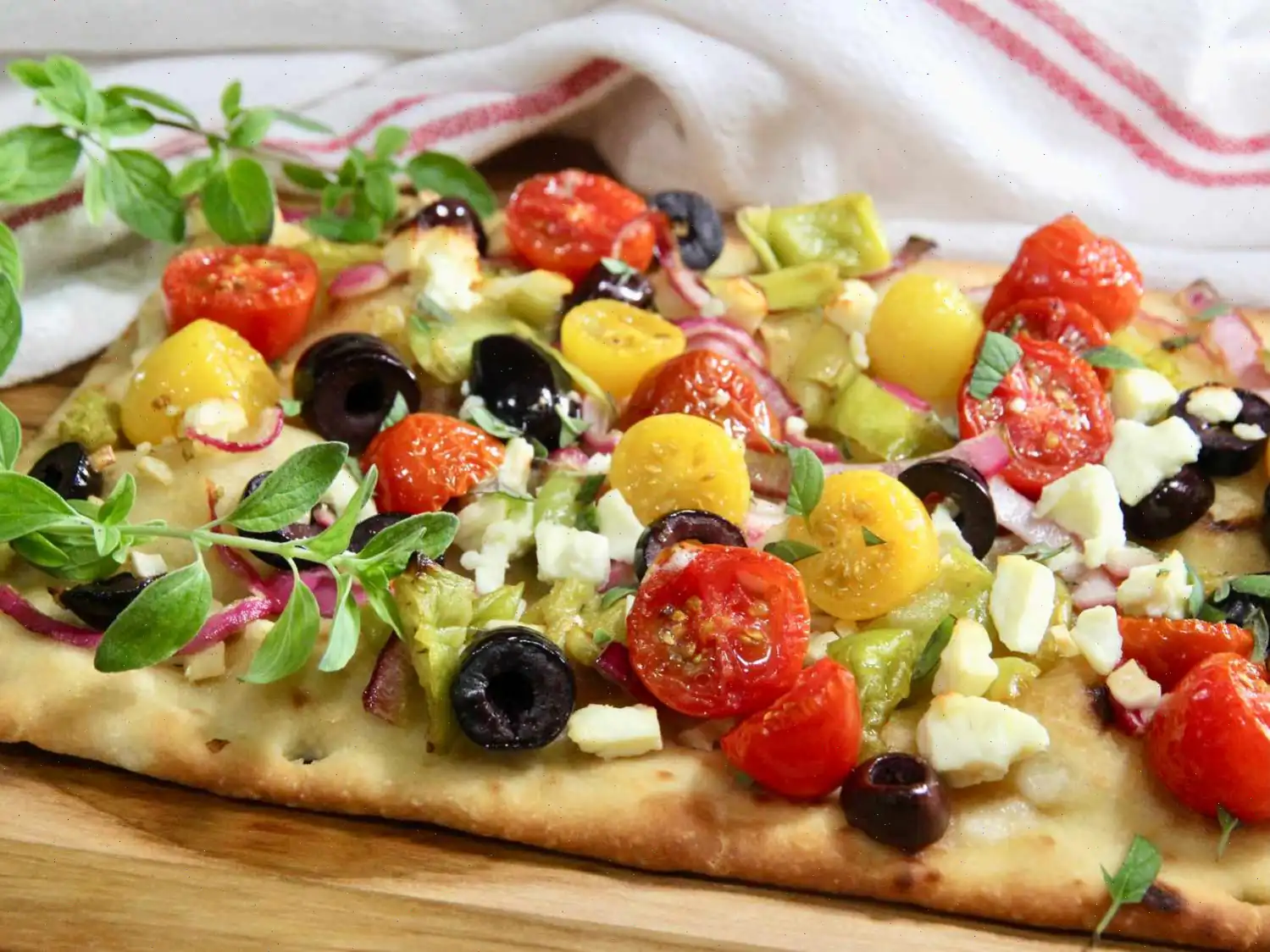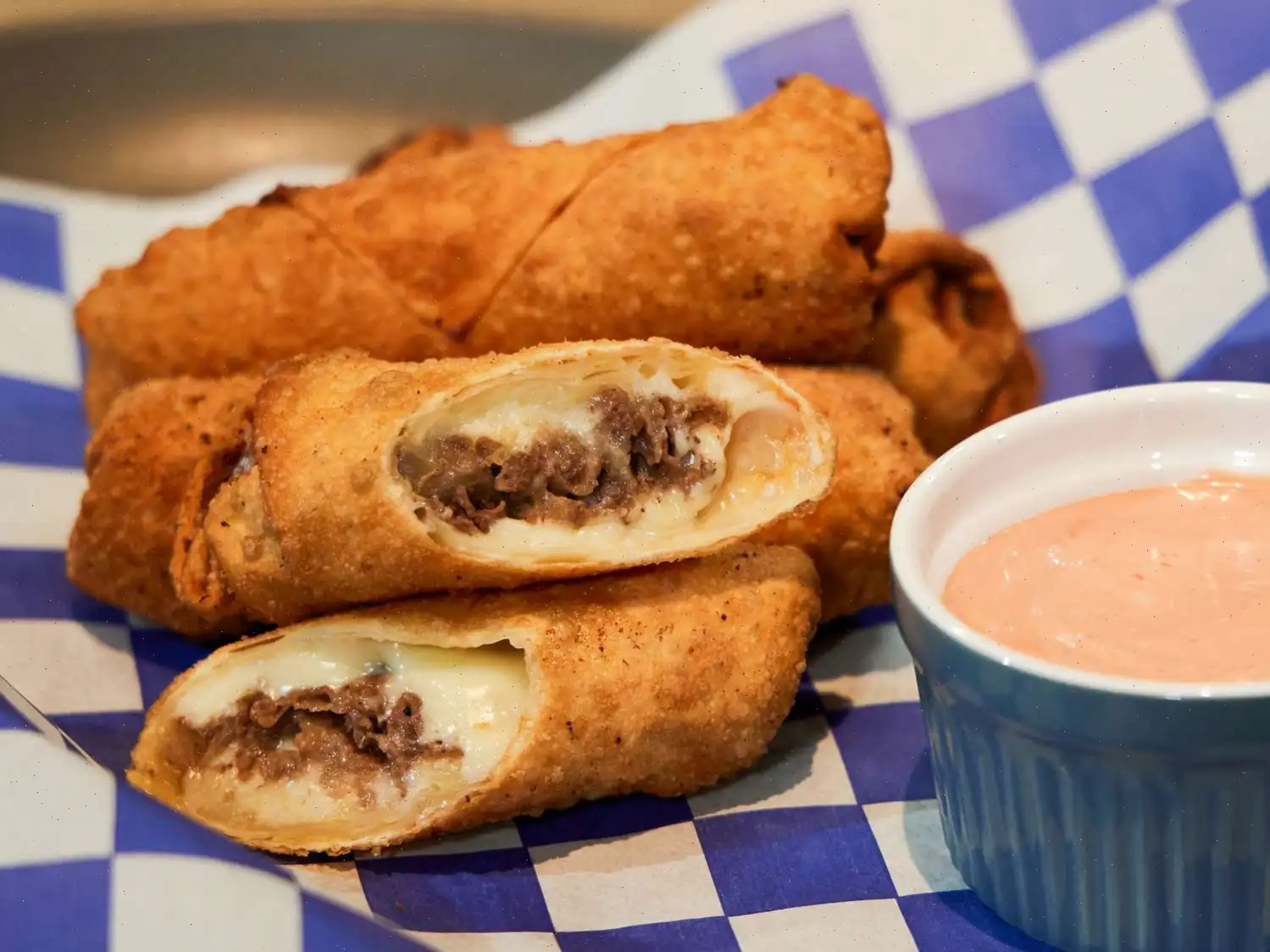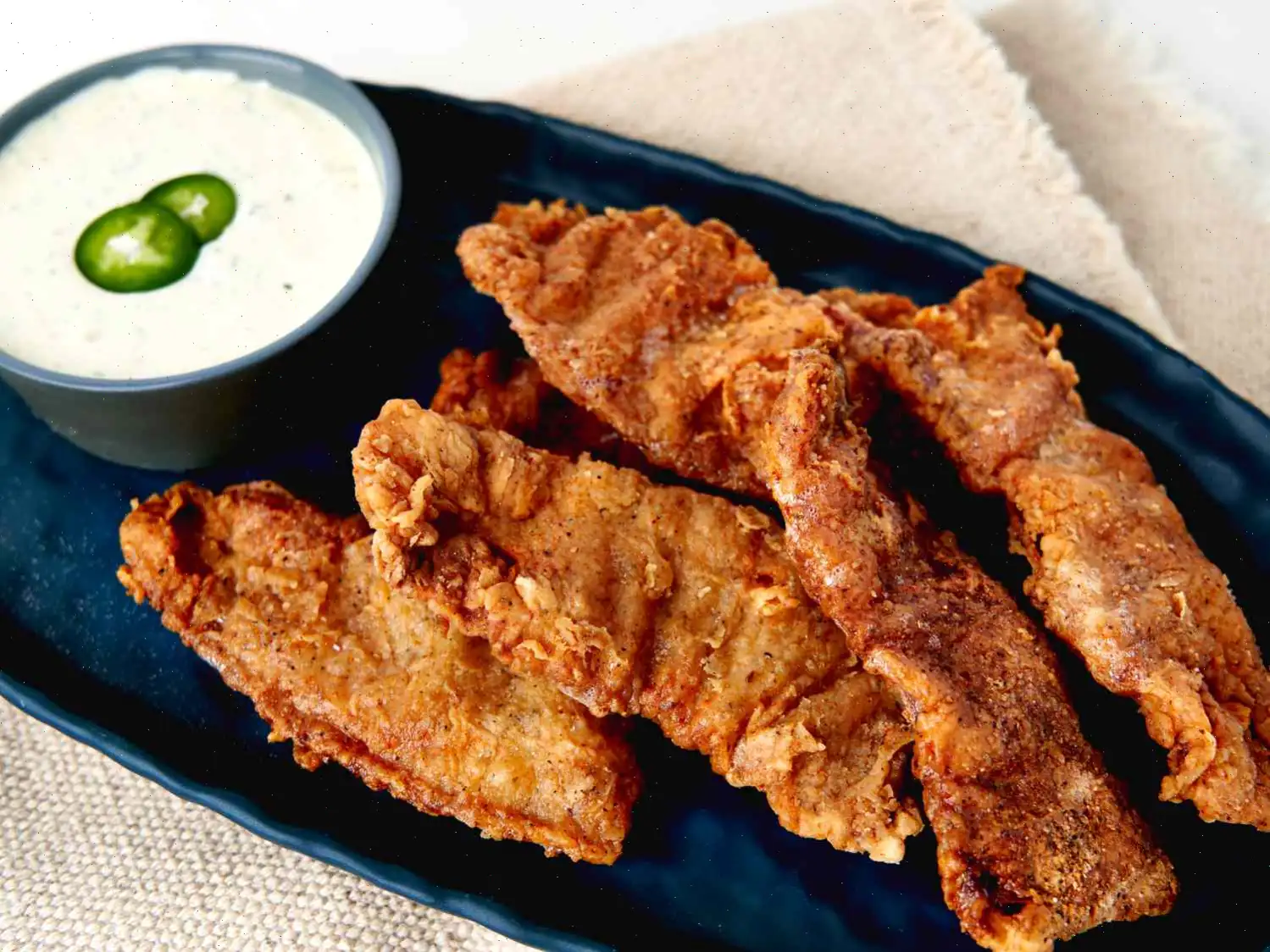
Receta de queso marinado "Dirty Jartini"
Esta receta de Queso Marinado Dirty Jartini es un aperitivo delicioso y fácil de preparar, ideal para cualquier reunión. La combinación de queso marinado con aceitunas, tomates secos al sol y hierbas crea un plato sabroso y lleno de sabor que queda perfecto con pan crujiente o galletas saladas. ¡Impresiona a tus invitados con este plato sencillo pero elegante que seguro será un éxito en tu próxima fiesta!
Ensalada de Quesos con Aceitunas Rellenas y Ginebra
Una receta deliciosa y nica que combina quesos cremosos, aceitunas rellenas de queso azul y un toque de ginebra. Ideal para servir como aperitivo o acompaamiento en cualquier comida. Perfecta para sorprender a tus invitados con algo original!
Ingredientes (para 8 porciones)
- 115 g de queso feta, cortado en cubos pequeos
- 115 g de queso havarti, en trozos pequeos
- 115 g de queso azul, picado
- 120 g de aceitunas rellenas de queso azul (reservar 3 cucharadas de su lquido)
- 180 ml de aceite de oliva virgen extra
- 3 cucharadas del lquido de las aceitunas reservadas
- 1 cucharada de ralladura fina de limn
- 1 cucharadita de hojuelas de chile rojo triturado
- 60 ml de ginebra
Instrucciones de Preparacin
- En un frasco grande de vidrio, coloca los cubos de queso feta, el queso havarti, el queso azul y las aceitunas rellenas.
- Agrega el aceite de oliva, el lquido reservado de las aceitunas, la ralladura de limn, las hojuelas de chile y la ginebra.
- Cierra bien el frasco y agtalo suavemente para mezclar todos los ingredientes de manera uniforme.
- Refrigera la mezcla durante varias horas para que los sabores se integren correctamente.
Informacin Nutricional (por porcin)
- Caloras: 362
- Grasas totales: 34 g
- Grasas saturadas: 11 g
- Colesterol: 37 mg
- Sodio: 760 mg
- Carbohidratos: 3 g
- Fibra diettica: 1 g
- Azcares: 2 g
- Protenas: 9 g
- Vitamina C: 1 mg
- Calcio: 250 mg
- Hierro: 0 mg
- Potasio: 77 mg
Las recomendaciones diarias se calculan para una dieta de 2,000 caloras. Los requisitos individuales pueden variar, as que si tienes preocupaciones de salud especficas, te recomendamos consultar con un nutricionista.
El Queso Marinado Dirty Jartini es una versin moderna de los quesos marinados tradicionales, inspirada en el clsico cctel dirty martini. Surgi a principios del siglo XXI gracias a cocineros caseros y bartenders aventureros que queran combinar los sabores salados y sabrosos del queso con las notas sofisticadas de la ginebra y las aceitunas. La idea era simple pero innovadora: infusionar quesos familiares con una marinada inspirada en ccteles para crear un aperitivo audaz que funciona tanto como un inicio de fiesta como un snack gourmet.
Caractersticas Regionales
Aunque tiene races en la cocina estadounidense, el Queso Marinado Dirty Jartini lleva consigo influencias de las tradiciones mediterrneas y europeas. El feta, el queso azul y el havarti aportan cada uno su herencia a este platillo, reflejando los estilos de fabricacin de queso griegos, daneses y generales de Europa. En las regiones costeras y urbanas de Estados Unidos, donde la mixologa y los alimentos artesanales son muy celebrados, este platillo suele aparecer en bistrs de moda y bares de vino. As que, su identidad regional es una mezcla de perfiles de sabor mediterrneos con la creatividad contempornea estadounidense.
Qu lo Hace Diferente de Otros Platos Similares?
Los quesos marinados son comunes en muchas tradiciones culinarias, pero el Queso Marinado Dirty Jartini se distingue por su infusin inspirada en ccteles. A diferencia de las simples marinadas de aceite de oliva o hierbas, esta receta incorpora ginebra y salmuera de aceitunas, lo que le da al queso una complejidad sutilmente alcohlica y salada, reminiscentes de un dirty martini. La combinacin de tres quesos distintos asegura un equilibrio de texturas y sabores, desde el suave y cremoso havarti hasta el feta cido y desmenuzable, pasando por el fuerte y picante queso azul. Esta complejidad lo hace destacar entre otras recetas de quesos marinados que se basan nicamente en hierbas, especias o vinagre.
Ocasiones Tpicas de Servicio
El Queso Marinado Dirty Jartini se sirve ms comnmente como aperitivo o como un snack sofisticado. Combina maravillosamente con ccteles, especialmente aquellos a base de ginebra, y es un favorito en cenas, catas de vino y reuniones festivas. Algunos restaurantes de alta gama tambin lo incluyen en tablas de charcutera o como parte de un men de platos pequeos. Generalmente, se sirve fro en frascos o pequeos tazones, permitiendo a los invitados sacar porciones individuales con palillos o pequeos tenedores.
Datos Curiosos
- El nombre "Dirty Jartini" hace referencia de manera ingeniosa tanto al cctel dirty martini como al frasco utilizado para la marinada.
- Este platillo es una manera creativa de disfrutar el sabor de un cctel sin consumir alcohol en forma lquida, lo que lo hace popular para acompaar bebidas sin alcohol.
- Al combinar tres tipos de queso con ginebra y salmuera, este platillo se ha convertido en un bsico para los mixlogos que buscan impresionar a los invitados con una experiencia de ccteles comestibles.
- La marinada permite que los sabores se fusionen con el tiempo, por lo que es ideal prepararlo un da antes y dejar que el queso absorba completamente las notas herbales y saladas.
- Aunque el queso azul puede ser polarizante, la mezcla con el feta y el havarti suaviza su intensidad, hacindolo accesible para una mayor variedad de paladares.







